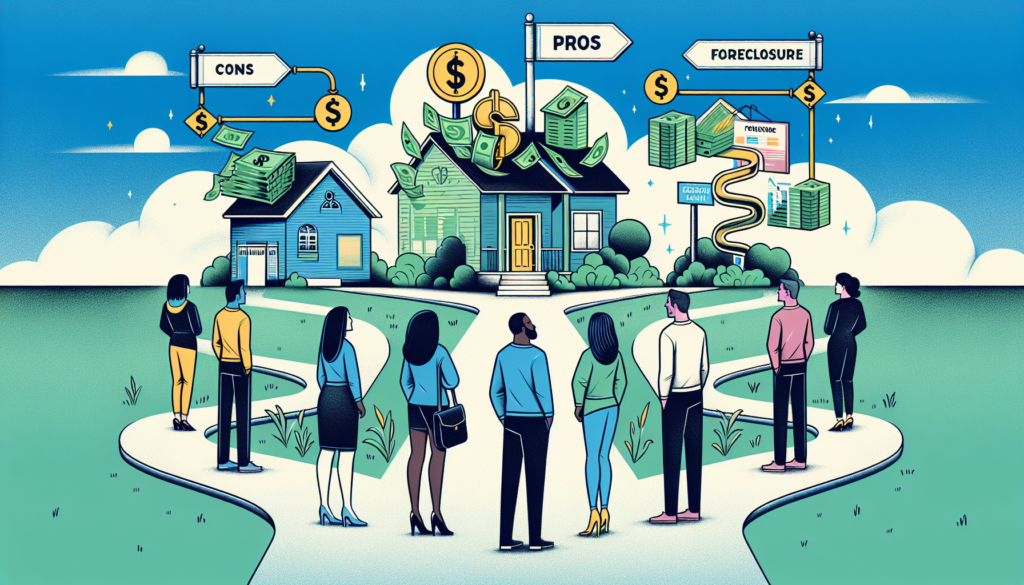Understanding Cash-Out Refinance: Pros, Cons, and How It Works
Ah, the enticing world of cash-out refinancing. Have you ever heard your neighbor bragging over the fence about how they just remodeled their kitchen or paid off a pesky debt with some mortgage magic? Well, chances are, they were talking about a cash-out refinance.
So, what exactly is this financial wizardry? Simply put, a cash-out refinance allows you to replace your existing mortgage with a new one—wait for it—for more than you owe. You’re probably wondering, Why would anyone do that? The kicker is, you get the difference in cash which you can spend on pretty much anything. Tempting, right?
### How It Works
Imagine you bought a house (let’s say it’s worth $300,000) and over the years you’ve paid down your mortgage to $150,000. With a cash-out refinance, you might be able to take a new mortgage for $200,000. After paying off the original $150,000, you’re left with $50,000 to fund your son’s college education, or perhaps to finally take that dream vacation to Bali.
Sound good? Of course, it does! But, hold your horses—there’s more you should know before you dive in.
### The Pros of Cash-Out Refinance
1. **Low-Interest Rates**: Generally, mortgages have lower interest rates than personal loans, credit cards, and other borrowing methods. So, you could save a hefty stack of cash in interest payments.
2. **Debt Consolidation**: It offers a fantastic way to consolidate high-interest debts under a lower rate, meaning more manageable monthly payments.
3. **Home Improvements**: Utilize the money to pump up your home’s value. That new kitchen or an added bedroom isn’t just a dream anymore!
4. **Tax Benefits**: If you use the cash-out refinance money to improve your home, you might get some juicy tax deductions. Always check with your tax advisor first, though!
### The Cons of Cash-Out Refinance
1. **Risk of Foreclosure**: Essentially, you’re putting your home on the line. If you can’t make the new mortgage payments, you might have to say goodbye to your cozy abode.
2. **Higher Interest Costs Over Time**: While you might be lowering your monthly payments, increasing the loan amount or extending the term can mean more paid in interest over the life of the loan.
3. **Fees and Closing Costs**: Refinancing isn’t free. There are often hefty costs associated with securing a new mortgage. Ensure the benefits outweigh these costs.
4. **Temptation to Splurge**: Getting a large sum of money can lead to serious spending temptations. Think long and hard about what you’re using the extra cash for. A jet ski sounds fun but… is it really necessary?
### So, Should You Go For It?
Answering this isn’t simple. It depends heavily on your financial situation, your long-term goals, and how well you can handle the cons. For instance, consider my buddy, Tom. He used a cash-out refi to consolidate $25,000 of credit card debt. Brilliant, right? Sadly, within a year, those credit cards were maxed out again, and now he had more debt than ever. It’s crucial to approach cash-out refinancing with a plan and a pinch of self-control.
### Before You Dive In…
1. **Assess Your Financial Health**: Look beyond the immediate gratification. Will this move pay off in the long run?
2. **Consult a Financial Advisor**: Seriously, a little professional advice never hurt anybody.
3. **Comparison Shop**: Don’t jump at the first offer. Shop around for the best rates and terms.
In the heart-pounding world of homeownership, cash-out refinance is indeed a powerful tool, filled with potential and pitfalls. Nail it, and you feel like the king of the hill; mess it up, and it’s more like Jack and Jill tumbling down that hill. Wise decision-making here, my friend, can truly make or break your financial future. So, what’s it going to be? A savvy investment or a fiscal fumble? The choice is all yours!




